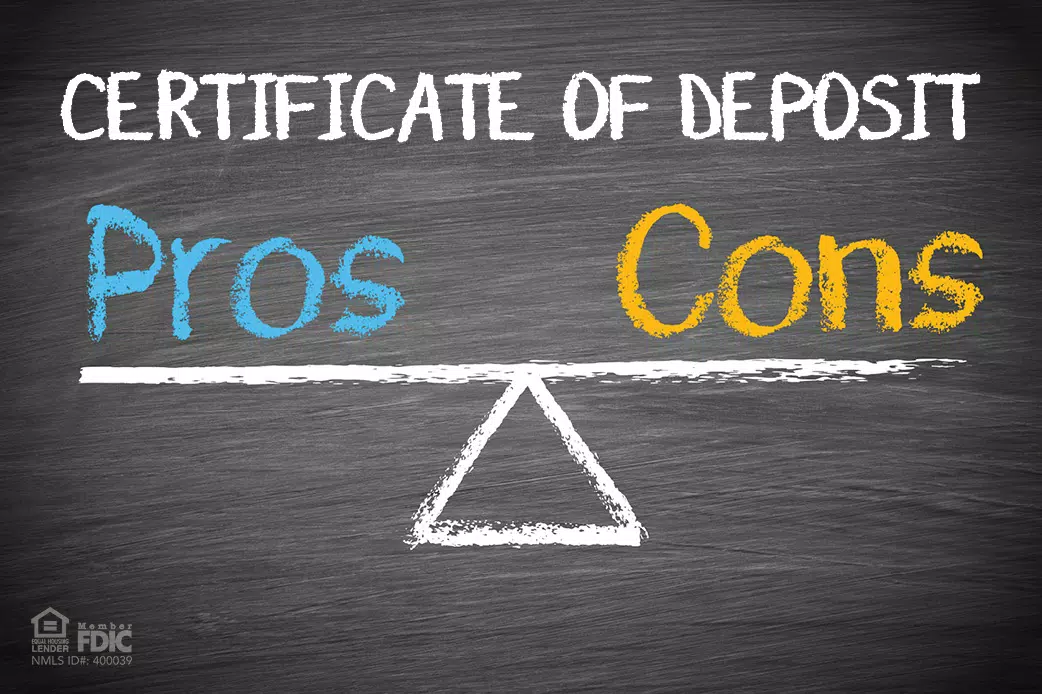Certificates of deposit, or CDs, are popular federally insured savings accounts that traditionally have higher rates than standard savings accounts. With a certificate of deposit, you agree to allow the financial institution to hold your money for a fixed period, which is generally three months to five years. In return, the institution will pay you interest on the balance. The longer you allow the financial institution to hold your money, the higher the interest amount earned.
Financial institutions use CDs to acquire cash, which they later use to make loans available to individuals and businesses, hold in reserves, or spend on their operations. They may also use other alternative funding sources, such as the Federal Reserve Bank and other banks. These alternatives can determine what a financial institution will set as an interest rate on a CD.
There are advantages and disadvantages to investing your money in a CD versus alternative investments. Read more below to learn about these alternative investments.
Advantages of CDs
Your funds are safe with a CD because the Federal Deposit Insurance Corporation (FDIC) insures it. The National Credit Union Association (NCUA) will protect the CD funds deposited into credit unions. If the financial institution fails, your money is protected up to $250,000. CDs are safer than more volatile investments, like stocks and bonds.
The interest rate earned on a CD is generally higher than that of interest-earning checking and savings accounts. Other higher-interest accounts, such as money-market accounts and money-market funds, don't offer the same higher interest.
Terms on CDs can range widely, which makes them very flexible. The term is the period the CD is held until it matures. You can find CDs for three months to three years. Some people who hold CDs will create a CD ladder. This is done by taking out several CD accounts that have differing term intervals and even amounts. For instance, you might open a six-month CD for $2500, a nine-month one for $2500, and a 12-month one for $3000. This provides more flexibility by enabling access to your cash more frequently. Depending on your needs, these CDs may be purchased at one institution or several.
CDs are also a predictable source of returns. Unlike stocks or bonds, you know what to expect from your investment. They also protect you from economic changes since the interest rate is locked in for some time. For instance, if interest rates start to fall, your CD's interest rate won't be affected by this change through its maturity.
Disadvantages of CDs
The biggest drawback to a CD is that your money is less accessible if an unexpected event occurs. You'll pay an early withdrawal penalty if you withdraw the money before the CD matures. This usually comes as lost interest earned or even the loss of part of your principal. The CD ladder may be a potential solution, so you can access some of your cash more often. However, you might be missing out on earning higher returns since longer-term CDs typically have higher interest rate earnings.
While you enjoy the advantage of a CD's stable interest rate in a falling interest rate market, the opposite happens when interest rates rise. You won't be able to reinvest your CD into a higher-yielding CD account until the money is available. Having your money locked up for a year or longer could affect your earning capability.
Compared to stocks and bonds, CDs generally offer low returns. These high-risk, high-return investments can potentially offer double-digit returns. You'll want to consider diversifying your financial portfolio with a good mix of safe investments like CDs, and more the riskier, rewarding investment account types.
Now that you know the pros and cons of CDs, and you’re ready to open a CD account, call us. NASB offers the opportunity to discuss CD options. You can reach us at 800-677-6272. And if you would like to learn more about certificates of deposit, check out our NASB Now video series, Understanding Certificates of Deposit.




